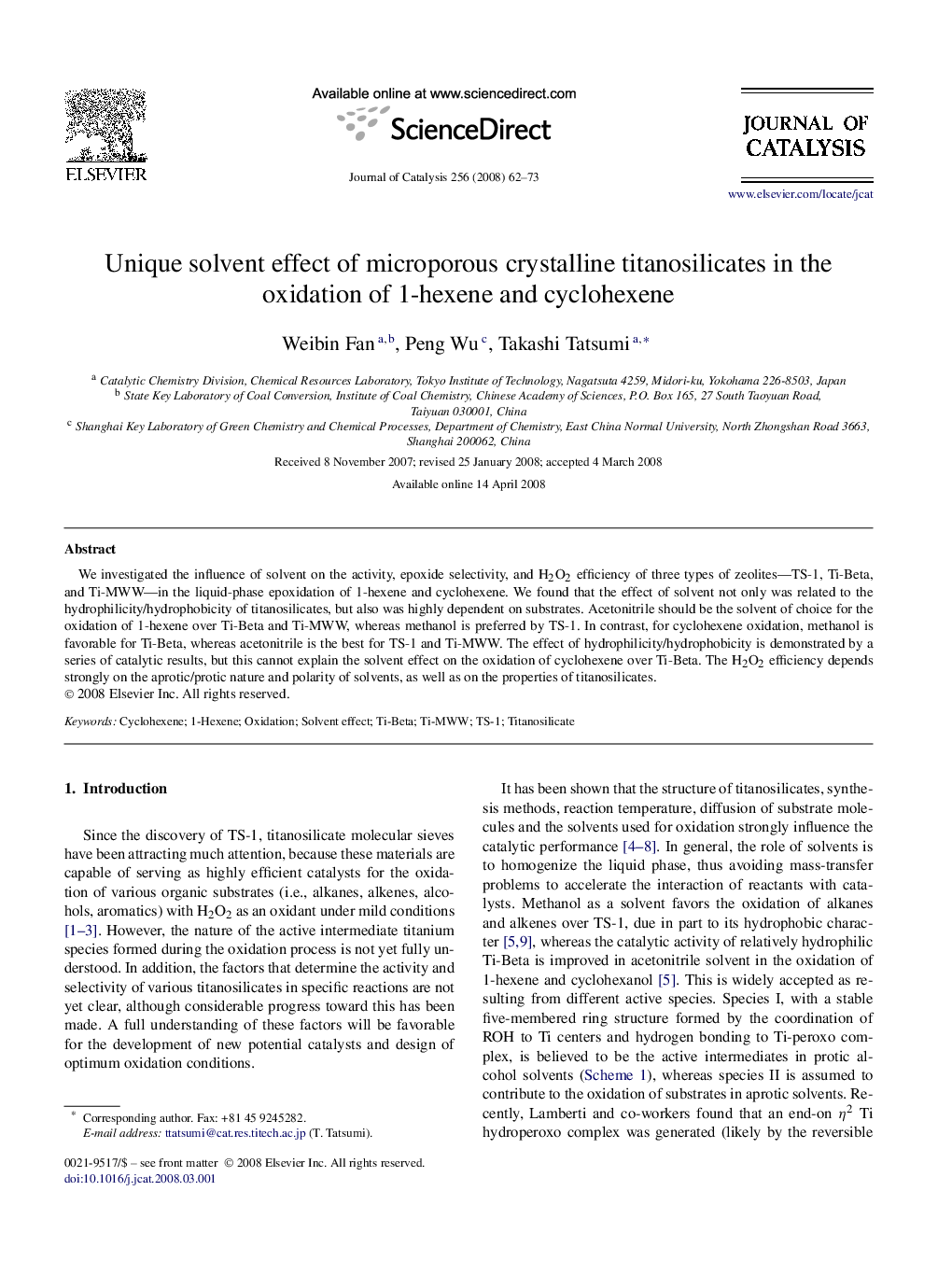| Article ID | Journal | Published Year | Pages | File Type |
|---|---|---|---|---|
| 62719 | Journal of Catalysis | 2008 | 12 Pages |
We investigated the influence of solvent on the activity, epoxide selectivity, and H2O2 efficiency of three types of zeolites—TS-1, Ti-Beta, and Ti-MWW—in the liquid-phase epoxidation of 1-hexene and cyclohexene. We found that the effect of solvent not only was related to the hydrophilicity/hydrophobicity of titanosilicates, but also was highly dependent on substrates. Acetonitrile should be the solvent of choice for the oxidation of 1-hexene over Ti-Beta and Ti-MWW, whereas methanol is preferred by TS-1. In contrast, for cyclohexene oxidation, methanol is favorable for Ti-Beta, whereas acetonitrile is the best for TS-1 and Ti-MWW. The effect of hydrophilicity/hydrophobicity is demonstrated by a series of catalytic results, but this cannot explain the solvent effect on the oxidation of cyclohexene over Ti-Beta. The H2O2 efficiency depends strongly on the aprotic/protic nature and polarity of solvents, as well as on the properties of titanosilicates.
